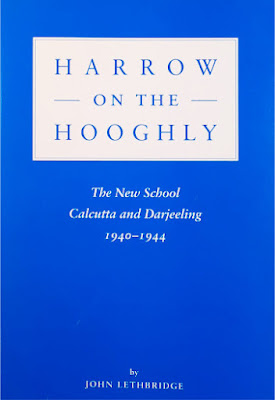Revenger, by Alastair Reynolds
Space pirates!! Revenger is what you might call a ripping yarn. Two kids steal aboard a pirate's sailing ship and go in search of treasure, hoping to repair the family fortunes. They have to prove themselves to their shipmates, deal with abrasive friendships, betrayals, tragic losses, and all sorts of nasty surprises; all in all growing up very quickly. A great range of unearthly threats and devilish traps confront them, not to mention some very unpleasant villains. Yes, Revenger might well have been a typical classic boy's adventure story; except that this isn't the 19th Century, it's set in space, the 'ship' sails on the sun's light, and the two sibling teenagers are girls.
It's the first book in a trilogy by Alastair Reynolds. He's best known for his Revelation Space series, the epitome of what most would think of as 'hard sf'. Which means that the real meat of the books is the speculative science, and its far future setting. I have read Revelation Space, and while for me it's not quite on the same high level as Iain M. Banks' Culture books, it's certainly ram packed with fascinating imaginative ideas, and I could well carry on and read more. But here, anticipating a week or so on holiday, I wanted something a little lighter, and this other series seemed to fit the bill. Maybe I was wary of the Young Adult branding (not that Reynolds or the publisher use it themselves, or do they?) some commentators throw at it, but I was basically after an engaging story, and in particular, a tale in which an sf author plays around with the concepts connected with solar sailing, which I can't recollect in other sf stories I've read. Not that such stories don't exist, I just haven't read one so far - ah! I lie! Of course that vessel in Gene Wolfe's Urth of the New Sun... But a very different book, definitely not for new readers :)
I'm torn, commenting on this book. I'm apparently not the only reader who's felt the tone is 'uncertain', and some of the narration a bit shambolic. To start with, the characters: if you took them individually and profiled them, I think you'd say Reynolds made them distinctive and interesting. Though I was somewhat disappointed by the Big Baddie when she finally appears at the end. The set-up deserved a sort of female Alan Rickman (think Sheriff of Nottingham or Hans Gruber), but we got... not that. By way of contrast, I think Fura's (the younger sister, protagonist in this book) character development is effectively done, though maybe that's because much of it depends on startling sf-style metamorphosis. But where's the sex, to be blunt? Not that I require gratuitous stuff, but the main two are teenagers, and there's no suggestion anywhere in the book that the thought of it has ever crossed their minds. Like I said - TEENAGERS!?!
But the character interaction and the dialogue is often clunky. I don't think Reynolds quite pulled off his version of pirate speech - he opts for 'ain'ts' and similar vernacular. He resolutely avoids any 'Aarrrhs' but we might as well have had one or two, for the laughs.
Then there's the plotting, which is annoying at times. It often feels forced, in pursuance of showing off the book's inventiveness and the various reveals. Getting through the various tight squeezes often required lots of handwaving and suspension of disbelief. On a tangent: readers not well used to science fiction might be seriously nonplussed at that remark, saying, but isn't it all fantastical? Well, yes and no. SF world building may be entirely beyond our own realities, but still needs to maintain a strong level of consistency. If you will, it needs to obey its own rules. Not too much of a problem in this book, but on the other hand, there's an awful lot of convenient happenstance. Just a small example, the way Fura rescues Paladin's head when escaping from Mazarile (yes, what the hell am I talking about... Need to know: Paladin's a robot).
Now I feel I'm overplaying the criticism. There are qualities strongly on show in Revenger which are very familiar from Revelation Space and, I assume, Reynolds' other books. One is Reynolds' habit of thinking up astonishingly unpleasant ways to die, taking full advantage of sf and space-set possibilities. Honestly, some of the gruesome deaths beat situations which have made movie goers rush out of cinemas, and if this book were ever filmed, I think producers' brows would be painfully knitted, trying to figure out what to do with them, if to show them at all.
No argument about the imagination involved! And that's the other quality which does give a shine to Reynolds' writing. The book is pleasingly full of ideas, often highly original ones, which I won't spoil here. I did feel the ending was a little weak, but there are two other volumes which perhaps make up for that. One does want to know how Fura turns out, and whether her sister has actually gone 'to the dark side', to use that cliché. I haven't even touched on the solar system of the book, and the extreme transformation it has undergone, into millions of microworlds. Neatly avoiding an issue many of us have about space travel in the future, the need for faster than light travel, because we don't have to go outside the one solar system.
So, decent SF, excellent world building, but uneven in some of the writing departments. I can see myself reading more in this series, but maybe given a choice, I'd pick up the next in the Revelation Space series first.




Comments
Post a Comment